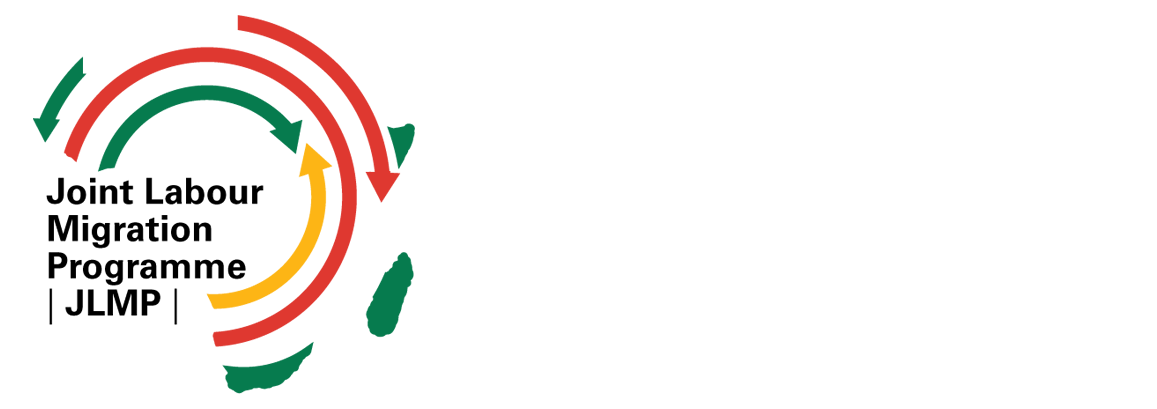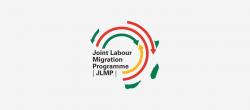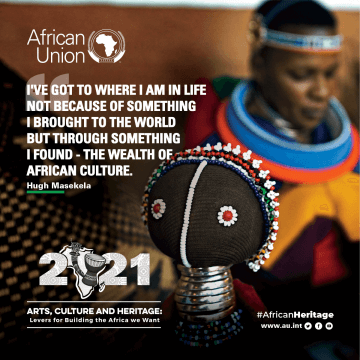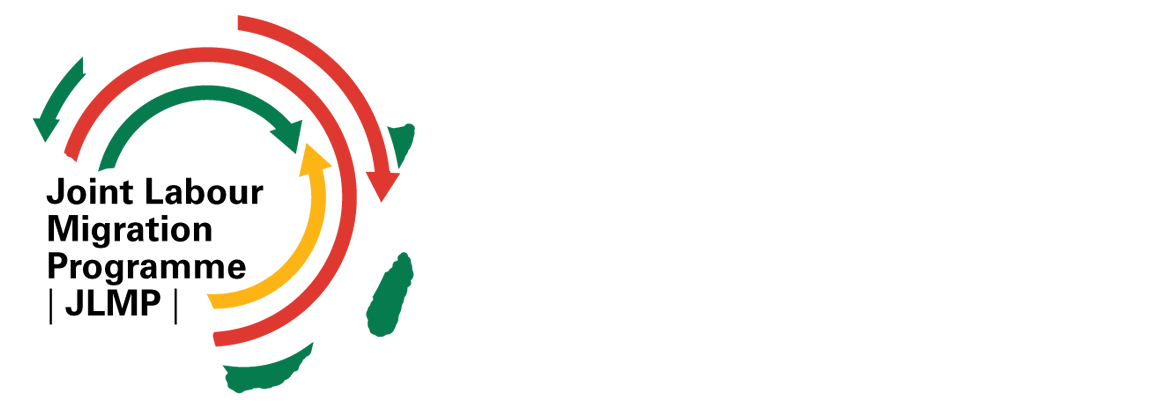In a virtual meeting held on Wednesday 11 November 2020 the Priority project of the African Union Commission (AUC)-International Labour Organization (ILO)International Organization for Migration (IOM)-Economic Commission for Africa (ECA) Joint Programme on Labour Migration Governance for Development and Integration in Africa (JLMP) reviewed progress made and reaffirmed its commitment to improve labour migration governance on the continent, despite constraints imposed by COVID19.
The meeting was attended by representatives of the AUC, Regional Economic Communities (RECs), International Organization for Migration (IOM), International Labour Organization (ILO), representatives from Swedish International Development Cooperation Agency (SIDA), which is funding the Programme and representatives from the Swiss Agency for Development Corporation (SDC).
In opening the session Mr. Oumar Diop, on behalf of Madame Cisse Mariama Mohammed, Director Social Affairs at the African Union Commission, said while the pandemic had created additional challenges on timely implementation of the project, the AUC and partners were continuing to strengthen labour migration governance capabilities across the continent.
“As JLMP implementing partners we are looking to increase cooperation as we move to increasingly engage Member States as implementation cascades down to the country level. We hope to travel together on this journey for the benefit of migrants”, he said.
The project is a partnership between the AUC, RECs, social partners, ILO and IOM. Its Technical Committee, which is made up of the AUC, RECs, ILO, IOM as well as invited partners, meets twice a year to assess implementation of activities, agreeing on annual work plans and continuous monitoring of the project.
Recognizing the achievements of the Programme over time, Mr. Diop highlighted progress made, and successes scored. Within the period, JLMP stakeholders developed and validated the JLMP Strategic Framework and the monitoring and evaluation framework (2020-2030), which will be launched before close of the year. The Strategic Framework provides a platform for coordinated and coherent implementation of the long-term JLMP.
In addition, a mid-term evaluation of the JLMP Priority Project is underway to effectively capture lessons learnt and to provide information on the nature, effectiveness, sustainability and potential impact of the Project.
Several other achievements include finalisation and launch of the second edition of the Labour Migration Statistics Report (2019), with data collection for a third edition underway and working with the Economic Community of Central African States (ECCAS) to pilot new methods of administrative data collection. Several capacity building trainings were also conducted online, given the constraints presented by COVID-19. These include the development and ongoing roll-out of training modules on labour migration policy coherence, working with African Regional Labour Administration Centre (ARLAC) and capacity building workshops for labour administrators targeting National Schools of Public Administration (NSPA) of Frenchspeaking countries and the Centre Régional Africain d'Administration du Travail (CRADAT). Moreover, a ‘Programs and Qualifications for Skills Recognition and Development in The Leather Sector in Africa’ project commenced, working with the African Leather and Leather Products Institute (ALLPI). Development of a draft AU Declaration on the Protection and Promotion of the Rights of Migrant Workers as well as a migrant welfare programme for the continent is underway, and so is drafting of guidelines for the development of a model Bilateral Labour Migration Agreement for Member States. JLMP has commenced engagement with Member States and the Middle East on a multilateral cooperation partnership on labour migration, following assessment missions to UAE and Kuwait.
Moreover, 50 people from 15 Member States benefitted from training to strengthen consular and labour attaché services with a focus on international labour standards. JLMP is also supporting the EAC to develop its Regional Labour Migration Policy Framework, and the Government of Lesotho on its migration and development policy.
The AU-Labour Migration Advisory Committee (LMAC) was operationalized and made field visits to East African Community (EAC), Economic Community of Central African States (ECCAS), Common Market for Eastern and Southern Africa (COMESA), Intergovernmental Authority on Development (IGAD), Arab Maghreb Union (UMA), and Economic Community of West African States (ECOWAS) as well as holding webinars on labour migration and the conditions of African migrant workers in the context of Covid-19. Three policy papers, reflecting the impact of COVID-19 on labour migration trends are being finalized. Additionally, workshops on labour migration governance for workers’ organisations and for employers’ organisations were conducted.
Following the development of a communication strategy the JLMP website will be launched soon to give greater visibility to the Programme. The meeting recommended increased engagement with the RECs and the need to foster inter-REC cooperation and uptake of the Programme at the country level.
Mr Stephen Niyonzima of EAC Secretariat said, “We are grateful for receiving the labour migration expert seconded to EAC and we look forward to all RECs and
Member States mainstreaming JLMP strategies and activities. This calls for more sensitization and awareness activities to ensure policymakers and implementors are aware of this important programme, and more interactions at the grassroots to help people understand the programme.” A regional validation meeting of the EAC’s eimmigration policy was also supported last year.
On his part, Mr Maxime Ake of ECASS said, “We look forward to better cooperation between the regions and much closer collaboration with the AUC to share best practices on labour migration. With collaboration, coordination and synergy we can reach much more satisfying and efficient results.”










